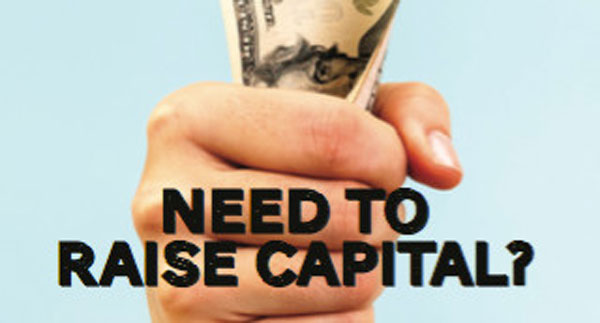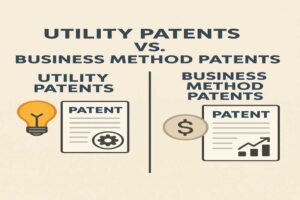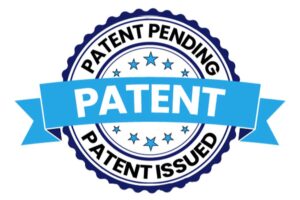- A company is in need of capital for any reason that it demonstrates can generate profits and amortize within a reasonable time frame.
- In the investor’s mind, the problem is not to provide the capital but to be certain he will retrieve it within a certain time frame.
- The best way to for the equity investor or shareholder to retrieve its capital with profit or to dissociate the equity investor or shareholder from his investment or participation is to take the company public through an Initial Public Offering of its shares of stock.
- As the United States of America securities markets have the lower barriers of entry and allow young companies in need of capital to make their Initial Public Offering early on, contrarly to the European, British and Swiss markets who require the company to be profitable and almost institutional before it allows it to make its Initial Private Offering.
- Once hired by someone paying its fees and expenses, Deschenaux Hornblower & Partners, LLP transform a company into a securities issuer and its capital need into an equity or debt securities issue whose sale will generate said capital.
Why do Deschenaux Hornblower & Partners, LLP charge anything other than a success fee if they know they will succeed in raising the funds ?
- Information provided by the Entrepreneur or the Company might not be true or complete and thus our decision to take the risk might be wrong.
- In the past, we saw entrepreneurs changing their mind:
- One of them decided first not to provide the required balance sheets and then not to go public despite the facts that investments already raised through our network of partners exceeded USD 17 millions.
- Another got us to raise money for a large real estate development in eastern Europe centered around a casino which turned large American investment banks on and then realized local authorities did not want the casino to be preeminent and reduced it to a small room, thereby turning the same banks totally off.
- Another fell in love and decided to change life and stopped the project.
- Since then we came to this simple conclusion: being paid will keep us in business even if it is far less profitable than achieving the goal.
- Deschenaux Hornblower & Partners, LLP do that by drafting a disclosure document called Private Offering Memorandum O Private Placement Memorandum that it registers with the U.S. Securities & Exchange Commission and a number of other documents such as the Short Summary and the Roadshow Webcast that Potential Investors need to make their investment decisions.
- Thereby the capital need is transformed into a security which is financial product.
- This means that the company will issue shares of stock or bonds that will be sold to selected accredited investors such as funds, investment banks, commercial banks, financial companies, family offices and ultra-high net worth individuals called Prospects O Potential Investors.
- Deschenaux Hornblower & Partners, LLP plan the Distribuzione privata di titoli through the setup of a syndicate with the help of its partners members of the Rete di private equity.
- To present the opportunity of investment also called financial product or security the Private Equity Distribution Network needs the Private Offering Memorandum O Private Placement Memorandum, the corporate video and an Investors’ presentation.
- Deschenaux Hornblower & Partners, LLP are drafting documents and organizing the transaction from a strategic and legal standpoint.
- Deschenaux Hornblower & Partners, LLP’s limit of action is to organize agreements between the syndicate and the Issuer and planning the roadshows with them butDeschenaux Hornblower & Partners, LLP never distribute securities directly.

is the work of several investment banks, securities broker-dealers and financial companies and intermediaries all members of the Private Equity Network.
- Their first job is to distribute Short Summaries and Roadshow Webcast link to all Potential Investors and Prospects.
- Then the Rete di private equity Members aim at filling the rooms of the Roadshow presentations.
- They organize due diligence meetings in person or through video conferencing between the representatives of the Issuer and Potential Investors and Prospects.
They collect subscriptions by getting Potential Investors and Prospects to sign a Subscription Agreement and to pay the amount of the subscription corresponding to the quantity of securities subscribed.
Continuous Closing Offering
The subscriptions can be paid either directly to the Issuer, in such case it is a continuous closing of the Subscriptions Escrow Account as in fact there is no separate account.
Escrow Account Offering
There can be a separate Subscriptions Escrow Account managed by a trustees (law) firm:
Fully Subscribed Offering
If the total amount raised by the subscriptions is equal to the amount of the offering, the trustees collect the securities from the issuer and against this remittance pay to the issuer the amount of the issue minus the commissions owed to the Rete di private equity Members.
Under-Subscribed Offering
- If the total amount of the subscriptions raised by the Rete di private equity Members is inferior to the amount of the offering, the trustees verify that it fills the minimum subscription stated in the Private Offering Memorandum or Private Placement Memorandum in the case of a Min-Max Offering.
- If it does fill the minimum subscription stated in the Private Offering Memorandum or Private Placement Memorandum, the trustees collect the securities from the issuer and against this remittance pay to the issuer the amount of the issue minus the commissions owed to the Rete di private equity Members.
- If it does not, the trustees organize an investors meeting where the investors hear the representatives of the Issuer describe an alternative business plan taking into account the lower capital raised and decide if they maintain their investment in the issuer under those circumstances.
- If all or some of the investors do want to maintain their investment in the Issuer, the trustees collect the corresponding quantity of securities from the issuer and against this remittance pay to the issuer the equivalent amount of the issue minus the commissions owed to the Rete di private equity Members.
If all or some of the investors do not want to maintain their investment in the Issuer, the trustees return their entire investment to them. No commissions are owed or paid to the Rete di private equity Members.
Over-Subscribed Offering
- If the total amount of the subscriptions raised by the Rete di private equity Members is superior to the amount of the offering, the trustees verify that it fills the maximum subscription stated in the Private Offering Memorandum or Private Placement Memorandum in the case of a Min-Max Offering.
- If it does fill the minimum subscription stated in the Private Offering Memorandum or Private Placement Memorandum, the trustees collect the securities from the issuer and against this remittance pay to the issuer the amount of the issue minus the commissions owed to the Rete di private equity Members.
- If it does not, the trustees organize a meeting with the representatives of the Issuer to know whether the Issuer accepts the excess of capital raised and decides to maintain the same valuation for excess of capital raised under those circumstances.







